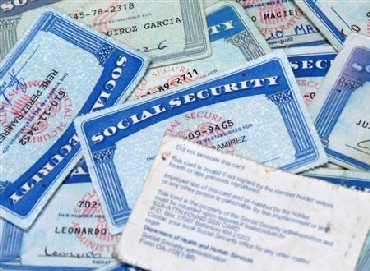 | « Back to article | Print this article |
Here's a financial checklist for home-bound NRIs
When Kartik Mehta returned to India after 15 years in Dubai, he was taken aback by the paperwork that awaited him.
"The first step is getting your residential status changed in all documents, including Permanent Account Number (PAN) card for taxation, ration card, etc, which takes months and endless rounds to offices," says an exasperated Mehta, adding that getting oriented with the laws and regulations comes much later.
Besides the paperwork, some other areas that homeward-bound Indians like Mehta must bear in mind are the shift in taxation system and changes in bank accounts, among others.
Click NEXT to read more...
Here's a financial checklist for home-bound NRIs
Taxation
Under the Indian taxation system, taxation is linked to one's residential status and not citizenship. Residential status means physical presence in the country in excess of 183 days or six months.
Once the taxable assets are determined, the income tax slabs and rates will be the same as those applicable to regular citizens. For instance, say you are a taxpayer in the US and hold some assets in India.
According to law, you can be taxed by the US government on all your 'global' moveable and immovable assets.
However, once you shift to India and become a taxpayer in India, the opposite will be true.
Click NEXT to read more...
Here's a financial checklist for home-bound NRIs
That is, any asset held by you in the US will come under the purview of the Indian tax authorities and they will have a right to tax the same.
Which assets can be taxed will also be a function of the Double Taxation Avoidance Agreement between the two countries.
However, say you move to India and sell off all your assets abroad. And, transfer the amount received to your account in India.
Click NEXT to read more...
Here's a financial checklist for home-bound NRIs
"This amount is income earned and received abroad and, hence, non-taxable on transfer. However, any income earned from this amount in India would be taxable according to the slab applicable," says Vikas Vasal, executive director, KPMG.
The assumption is that all tax liabilities pertaining to this amount are met abroad itself. As Suresh Surana, founder, RSM Astute Consulting Group, explains, "Many nations make provision for it in the form of 'exit tax'.
So, if an individual gives up his/her citizenship status, it is assumed that you have sold all your assets at fair market value and are taxed at the rate of capital gains on such assets."
Click NEXT to read more...
Here's a financial checklist for home-bound NRIs
Bank Accounts
NRIs are not allowed to hold regular savings accounts in India. They must choose from non-resident external (NRE) and non-resident ordinary account (NRO) accounts.
Both these accounts are specially designed for non-residents, but differ in the facilities they offer. The shift would depend on which one you hold.
NRE accounts allow you to deposit only foreign funds and these can be repatriated completely.
The amount and any interest earned thereon is completely tax-free. Conversely, NRO accounts allow you to deposit any due earned in India (for example, rent earned from property here), as well as your foreign funds.
There is a restriction on the amount you can repatriate in a year (not more than $ 1 million). And, the interest earned is taxed at a flat 30 per cent rate. Both the accounts earn interest at par with regular savings accounts (four per cent).
Click NEXT to read more...
Here's a financial checklist for home-bound NRIs
The onus of changing these accounts from NRE/NRO to regular ones lies with the customer. He/she must intimate the bank.
Due to the tax-free nature of the NRE accounts, after any change in residential status is effected, you have to close the account entirely.
And, transfer the balance to a newly opened account. Whereas, the NRO account can be simply converted into a regular savings account.
Click NEXT to read more...
Here's a financial checklist for home-bound NRIs
Transfer of social security
This continues to be a grey area for many. Contributions towards social security or some form of pension fund are mandatory in most nations.
"But the benefits are typically accrued to you only post-retirement. Premature withdrawal may not be possible." says Sandeep Shanbhag, a certified financial planner.
Further, you may have contributed towards social security for a specific period for even being eligible for the benefit.
For instance, in the US, you must contribute for a minimum 10 years to be eligible for any benefits. Otherwise, you may have to forfeit your contribution entirely.
So, assuming you have completed 10 years of contribution and then decided to move back to India, you may still have to wait for retirement to access these funds.






